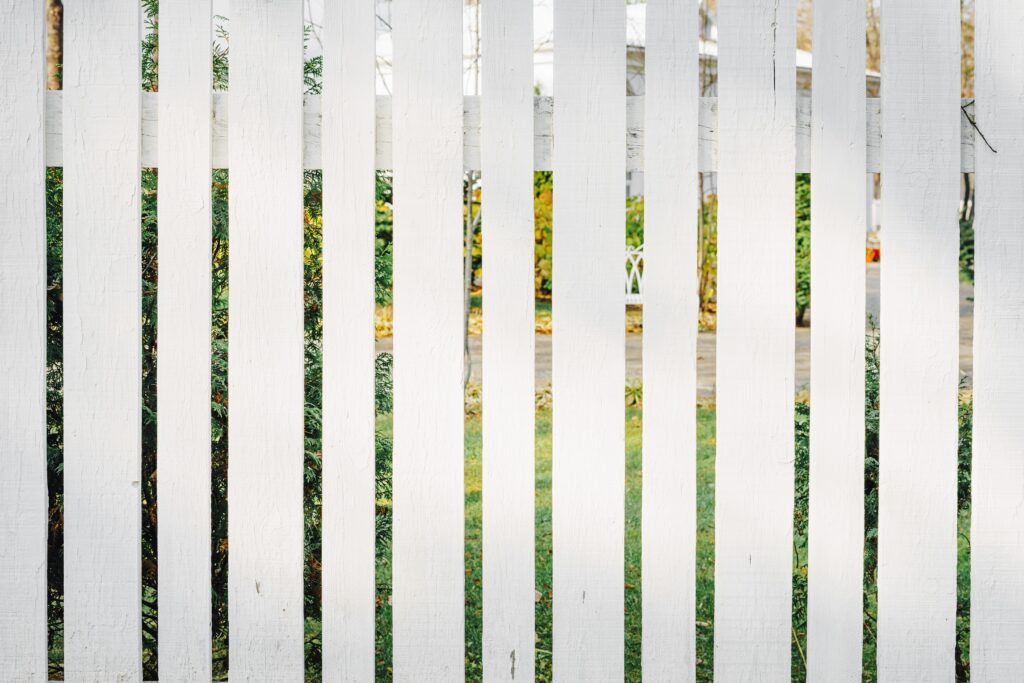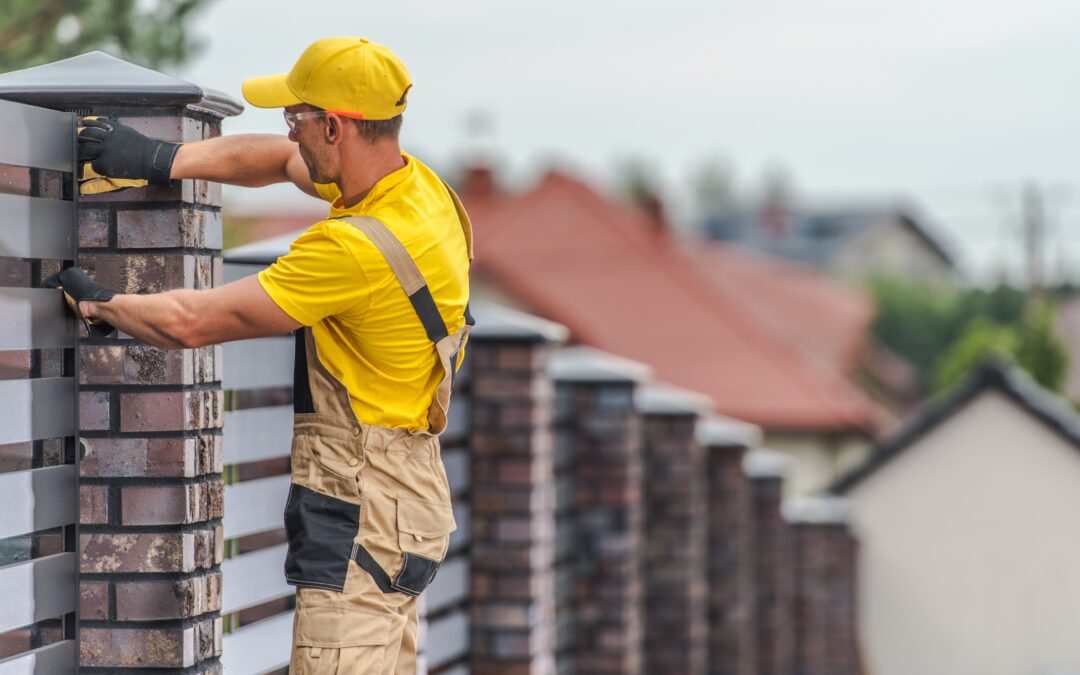When considering the installation of a fence for a home, homeowners have to weigh various factors including privacy, security, aesthetics, cost, and maintenance. The choice of fence depends largely on the homeowner’s priorities and the characteristics of the property.
Residential Fence Installation | Which Type of Fence Should be Considered for a Home
Privacy Fences: For those seeking privacy, solid fences such as wood, vinyl, or composite materials are excellent choices. Wooden fences, like cedar or redwood, offer a traditional look and can be painted or stained to match the home’s aesthetic. Vinyl fencing is a low-maintenance alternative that can mimic the look of wood without the risk of rot or insect damage. Composite materials, combining wood fibers with plastic, offer a durable and eco-friendly option.
Security Fences: Security is a primary concern for many. Metal fences, such as wrought iron, steel, or aluminum, provide strong barriers without sacrificing style. Wrought iron is robust and can feature ornamental designs, but requires regular maintenance to prevent rust. Aluminum and steel are durable and offer similar aesthetics with less upkeep.
 Decorative Fences: For decorative purposes, picket fences made of wood or vinyl can add charm to a property. These fences are not as high and often have gaps between the slats, offering less privacy and security but contributing significantly to curb appeal.
Decorative Fences: For decorative purposes, picket fences made of wood or vinyl can add charm to a property. These fences are not as high and often have gaps between the slats, offering less privacy and security but contributing significantly to curb appeal.
Cost-Effective Fences: Chain-link fences are cost-effective and secure, although they offer little privacy. However, they can be combined with climbing plants or privacy slats to enhance their appearance and functionality.
Natural Fences: Living fences or “green screens” created from shrubbery or trees can provide privacy and enhance the landscape’s natural beauty. While they require time to grow and regular maintenance, they offer an organic solution that can support local ecosystems.
Noise Reduction Fences: For noise reduction, solid fences like concrete or masonry walls can be effective. They are the most expensive options and require professional installation but are durable and provide a sound barrier along with privacy and security.
Maintenance Considerations: The chosen material will dictate the maintenance level. Wood may require staining or painting every few years, while metals may need rust protection. Vinyl and composite materials are typically maintenance-free aside from occasional cleaning.
Local Regulations and Climate: Before installation, it’s essential to check local zoning regulations which may dictate the height, material, or style of fences allowed. Additionally, the climate should influence the decision—wood may not be suitable for very damp climates, whereas metals may be unsuitable for coastal areas due to salt corrosion.
Personal Style and Home Architecture: The fence should complement the style of the home. A modern home might be well-suited to a minimalist metal fence, while a cottage-style home could be enhanced by a wooden picket fence.
Long-Term Planning: Consider the long-term implications of the chosen fence. While a higher initial investment in a durable fence like vinyl or metal might be steep, it may pay off in the long run with lower maintenance costs and a longer lifespan.
In conclusion, the choice of a home fence depends on balancing the desired level of privacy, security, aesthetics, cost, and maintenance with local regulations and climate conditions. Homeowners should consider all these factors to make an informed decision that will enhance their property’s value and their enjoyment of their home space.
Looking for a Great Residential Fence Installation Company in NJ?


 Decorative Fences: For decorative purposes, picket fences made of wood or vinyl can add charm to a property. These fences are not as high and often have gaps between the slats, offering less privacy and security but contributing significantly to curb appeal.
Decorative Fences: For decorative purposes, picket fences made of wood or vinyl can add charm to a property. These fences are not as high and often have gaps between the slats, offering less privacy and security but contributing significantly to curb appeal.